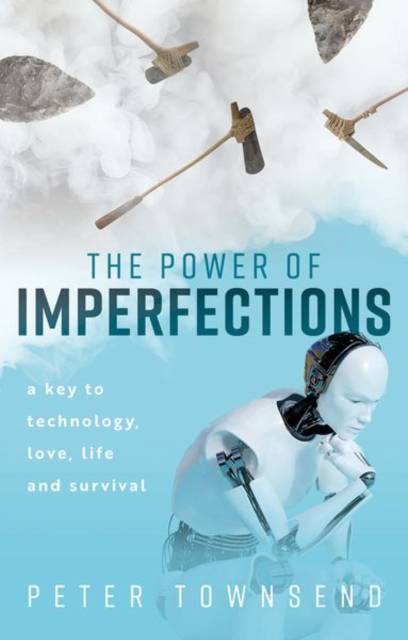
Door een staking bij bpost kan je online bestelling op dit moment iets langer onderweg zijn dan voorzien. Dringend iets nodig? Onze winkels ontvangen jou met open armen!
- Afhalen na 1 uur in een winkel met voorraad
- Gratis thuislevering in België vanaf € 30
- Ruim aanbod met 7 miljoen producten
Door een staking bij bpost kan je online bestelling op dit moment iets langer onderweg zijn dan voorzien. Dringend iets nodig? Onze winkels ontvangen jou met open armen!
- Afhalen na 1 uur in een winkel met voorraad
- Gratis thuislevering in België vanaf € 30
- Ruim aanbod met 7 miljoen producten
Zoeken
The Power of Imperfections
A Key to Technology, Love, Life and Survival
Peter Townsend
Hardcover | Engels
€ 42,95
+ 85 punten
Omschrijving
It may be surprising to focus on and praise imperfection, but, in reality, perfection is a fiction. Every aspect of our technologies is based on understanding and exploiting imperfections in the materials we use. Imperfections are key to our use of metals, glass, electronics, computers, optical fibres, and building materials. Catalysis, as used throughout chemical industries, is dependent on imperfections, as are a wide range of modern advances in biology and medicine. This book provides examples in each area that are readily understandable to non-scientists but also aim to offer a far deeper insight into how the technologies and disciplines advance and operate. However, once we change our focus from idealised perfection to reality, the implications can extend far beyond the realm of the sciences. The second part of the book examines the importance of our ability to recognise and adapt to imperfections in such wide-ranging areas as cookery, successful career development, love, life, and the survival of humanity. Using a broad range of accessible examples, this book aims to give readers the tools to recognize technological imperfections and apply those lessons to improving several key aspects of our lives, crucially enabling them to define a world that will survive current excesses and environmental destruction.
Specificaties
Betrokkenen
- Auteur(s):
- Uitgeverij:
Inhoud
- Aantal bladzijden:
- 400
- Taal:
- Engels
Eigenschappen
- Productcode (EAN):
- 9780192857477
- Verschijningsdatum:
- 6/04/2022
- Uitvoering:
- Hardcover
- Formaat:
- Genaaid
- Afmetingen:
- 142 mm x 211 mm
- Gewicht:
- 680 g

Alleen bij Standaard Boekhandel
+ 85 punten op je klantenkaart van Standaard Boekhandel
Beoordelingen
We publiceren alleen reviews die voldoen aan de voorwaarden voor reviews. Bekijk onze voorwaarden voor reviews.











